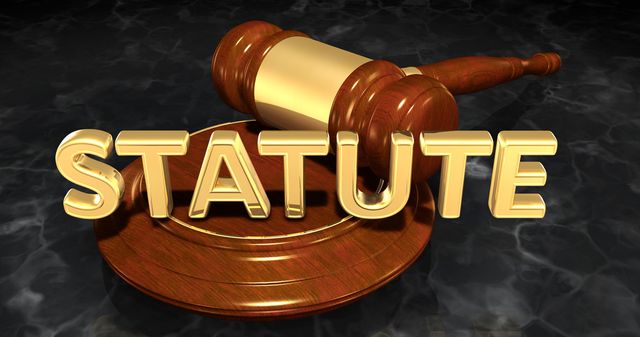3.4.1
Colonial Administrators
Colonial Administrators
Colonial Administrators
Colonial administrators took on the role of governing and administrating British colonies.


Responsibilities
Responsibilities
- Colonial administrators had various responsibilities. These included:
- Collecting taxes from indigenous people who lived and worked on British-owned land.
- Upholding British imposed laws.
- Defending British colonial rule by suppressing growing nationalist movements which sought greater representation or independence.


The Colonial Office
The Colonial Office
- Originally, there was one Colonial Office which was first created in the 18th Century to manage Britain's colonies in America.
- In 1925, this was split into two separate departments.
- The Dominions Office oversaw the running of British Dominions.
- The Colonial Office oversaw the running of British Colonies.
- This can be seen as pre-empting the legislation that was passed in 1931 that gave autonomy to the Dominions.
- There was a separate Office for the running of India. This was called the India Office.


Impact of the Statute of Westminster
Impact of the Statute of Westminster
- The Statute of Westminster passed through Parliament in 1931.
- This statute gave the dominions the autonomy to make their own laws and to govern themselves as they wished.
- The Governor-General in each of the dominions therefore, no longer had any legislative power.
- The role simply became that of a figurehead and their presence served as a reminder of the relationship these countries had to the Crown and the Commonwealth.


Colonial Services
Colonial Services
- In 1930, various sub-services for administrating the colonies were merged into one Colonial Service.
- This provided a more centralised system for organising personnel within the service.
- As a result, recruits became more generalised in their skill-base and their administrative qualities improved.
- To work in the Colonial Service was quite prestigious and something middle-class people aspired to.
- Public schools and top universities like Oxford and Cambridge churned out young men, normally trained in the humanities, who were ready for the Colonial Service entrance exams.
1High Water Mark of the British Empire, 1857-1914
1.1Development of Imperialism, 1857-1890
1.2Imperial & Colonial Policy, 1857-1890
1.3Trade & Commerce, 1857-1890
1.4Attitudes Towards the Empire, 1857-1890
1.5Relations with Indigenous Peoples, 1857-1890
2Imperial Consolidation & Liberal Rule, 1890-1914
2.1Consolidation & Expansion in Africa, 1890-1914
2.2Imperial & Colonial Policy, 1890-1914
2.3Trade & Commerce, 1890-1914
2.4Attitudes Towards the Empire, 1890-1914
2.5Relations with Indigenous Peoples, 1890-1914
3Imperialism Challenged, 1914-1967
3.1Expansion & Contraction of Empire, 1914-1947
3.2Colonial Policy & Administration, 1914-1947
3.3Trade, Commerce & Economic Impact of War
3.4Attitudes Towards the Empire, 1890-1914
3.5Relations with Indigenous Peoples, 1914-1947
4The Wind of Change, 1947-1967
4.1Decolonisation in Africa & Asia, 1947-1967
4.2Colonial Policy & Administration, 1947-1967
4.3Trade & Commerce, 1947-1967
4.4Attitudes Towards the Empire, 1947-1967
4.5Post-Colonial Ties, 1947-1967
4.6Relations with Indigenous Peoples, 1947-1967
Jump to other topics
1High Water Mark of the British Empire, 1857-1914
1.1Development of Imperialism, 1857-1890
1.2Imperial & Colonial Policy, 1857-1890
1.3Trade & Commerce, 1857-1890
1.4Attitudes Towards the Empire, 1857-1890
1.5Relations with Indigenous Peoples, 1857-1890
2Imperial Consolidation & Liberal Rule, 1890-1914
2.1Consolidation & Expansion in Africa, 1890-1914
2.2Imperial & Colonial Policy, 1890-1914
2.3Trade & Commerce, 1890-1914
2.4Attitudes Towards the Empire, 1890-1914
2.5Relations with Indigenous Peoples, 1890-1914
3Imperialism Challenged, 1914-1967
3.1Expansion & Contraction of Empire, 1914-1947
3.2Colonial Policy & Administration, 1914-1947
3.3Trade, Commerce & Economic Impact of War
3.4Attitudes Towards the Empire, 1890-1914
3.5Relations with Indigenous Peoples, 1914-1947
4The Wind of Change, 1947-1967
4.1Decolonisation in Africa & Asia, 1947-1967
4.2Colonial Policy & Administration, 1947-1967
4.3Trade & Commerce, 1947-1967
4.4Attitudes Towards the Empire, 1947-1967
4.5Post-Colonial Ties, 1947-1967
4.6Relations with Indigenous Peoples, 1947-1967
Unlock your full potential with Seneca Premium
Unlimited access to 10,000+ open-ended exam questions
Mini-mock exams based on your study history
Unlock 800+ premium courses & e-books